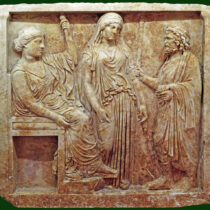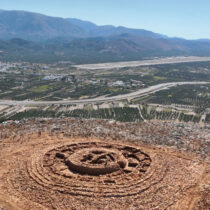From prehistoric times on, transport greatly contributed to people communicating through travel. Colonization and the Olympic Games opened new ways for communication between nations. Adventures at sea and impressions of journeys on land have already been described in the Homeric poems (8th century BC). Solon, the Athenian, travelled in the 6th century BC with the sole purpose of enriching his knowledge of foreign lands and people while Hecataeus, the geographer from Miletus (6th century BC) was the first to attempt to record whatever concerned an expedition in his (now fragmentary) work. Herodotus, in the 5th century BC met in his travels the people that the Greeks conquered during the Persian Wars. His work supplies us with invaluable information on these peoples’ religion, customs and behaviour, on geography and archaeology. In the 4th and 3rd centuries BC travelling had become popular with the Greeks and particularly with the Athenians. With Alexander the Great’s conquests and the founding of the Hellenistic states in Asia, the traveller’s interest was also attracted to oriental cities such as Alexandria, Pergamum, Ephesus and others. In the 1st and 2nd centuries AD the expansion of the “Imperium Romanum” gave new opportunities and opened new horizons to travellers. It was in the same era that Pausanias, the traveller, recorded in his work all the monuments and historic sites that played a role in Greek history and thus a valuable guide for modern historic and archaeological research has come down to us.
Ancient travellers
27 Jul 2012
by Archaeology Newsroom
- A
- A
- A


